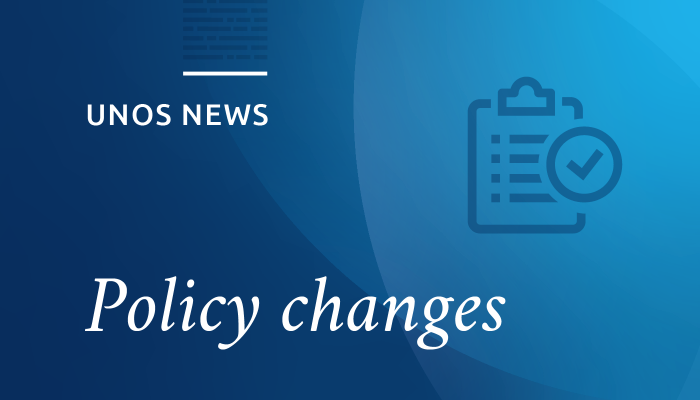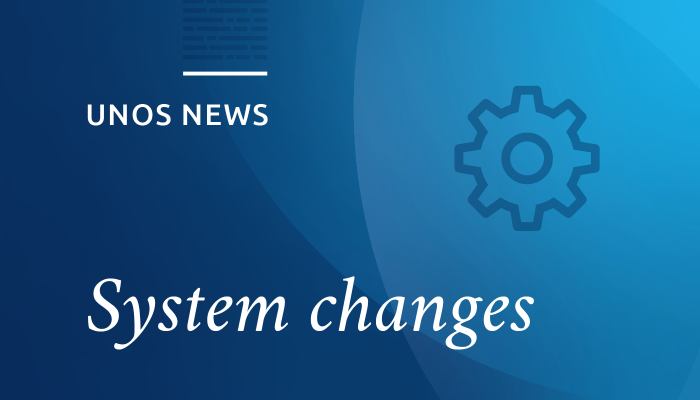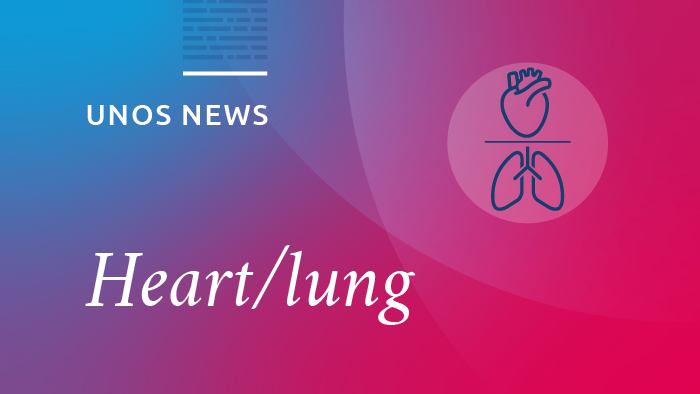
Thoracic Committee Dissolved July 1; Heart and Lung Committees begin new work
This change allows for the OPTN to be more representative and responsive to the community’s needs, which will in turn help patients.

This change allows for the OPTN to be more representative and responsive to the community’s needs, which will in turn help patients.

Effective June 30, 2020, new data elements are being captured within the graft function section of the Transplant Recipient Follow-up form (TRF).

Begining June 30, 2020, lung and heart-lung transplant programs will be required to provide additional data.

New update for electronic organ offer notifications provide additional efficiency and flexibility about how to offer organs.

The OPTN Board of Directors has voted to dissolve the Thoracic Organ Transplantation Committee and create two new OPTN committees in its place. Nomination period closes March 25, 2020.
